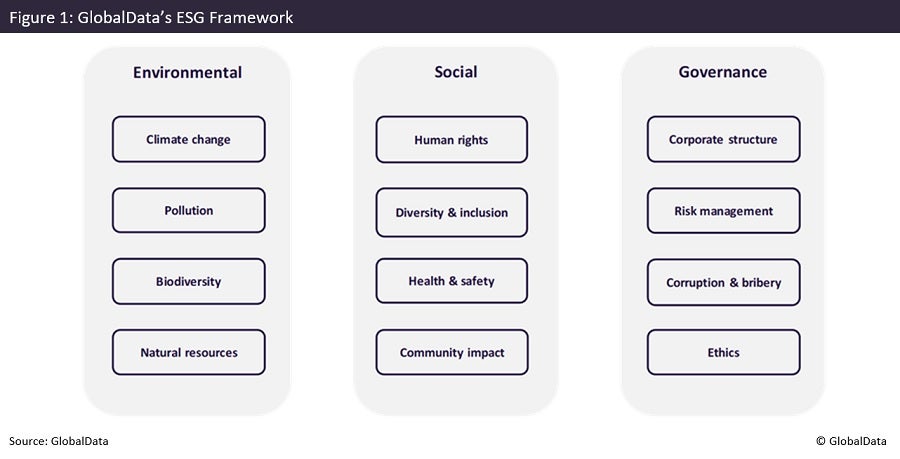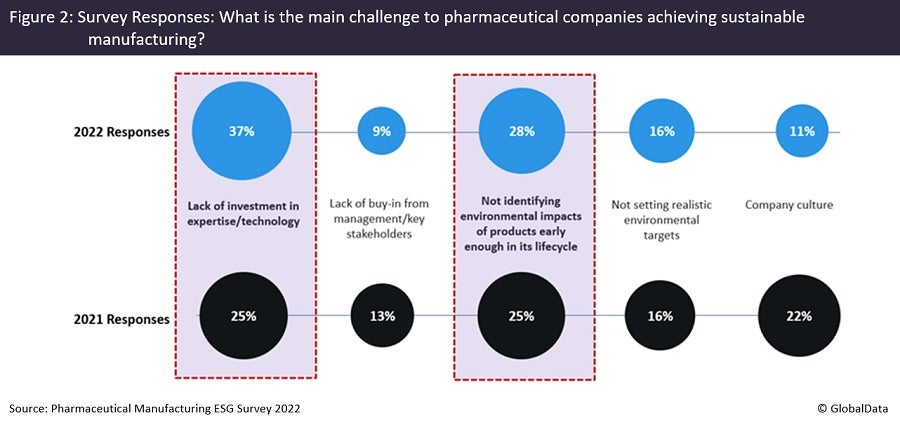The pharmaceutical industry must improve its environmental footprint by investing in technology and expertise, as well as through better design of new drugs early in their development, according to a GlobalData survey of the pharmaceutical industry. The report, Pharmaceutical Manufacturing ESG Survey – Towards a Sustainable Supply Chain (November 2022), reveals that most pharma industry insiders believe the sector is not doing enough to limit harm to the environment.
Survey respondents ranked societal sustainability second in importance, reflecting growing public and political awareness of drug supply chain precarity following the Covid-19 pandemic. Sustainability, referred to as environmental, social and governance (ESG), is an increasingly important concern for businesses; worldwide, the public is demanding action and accountability from the pharmaceutical industry. GlobalData’s ESG framework (Figure 1) identifies sustainability risks and areas to implement mitigating actions to improve companies’ ESG performance.

Respondents to the survey identified the environment as the most important of the three ESG sustainability concerns to pharma manufacturing. Contributing factors to environmental problems include greenhouse gas emissions; air, water and land pollutants; construction and deforestation; and the overuse of natural resources such as fossil fuels, minerals and water. When it comes to pharmaceutical manufacturing specifically, problems also include the leaching of active pharmaceutical ingredients (APIs) into the environment. This is a particular problem for highly potent drugs such as antibiotics.
The survey revealed the main challenges to achieving environmentally sustainable manufacturing to be a lack of investment in expertise and technology, and the need to identify a drug’s environmental impacts early in its lifecycle (Figure 2). Life cycle assessments (LCAs) are not yet common practice in the pharma industry, but they could help to improve pharma manufacturing’s environmental footprint.

Environmental problems are often displaced from pharma companies’ headquarters to Asia-Pacific (APAC) regions where manufacturing takes place. A report by the non-profit My Green Lab released at the COP27 conference on 10 November found that North American and European companies tend to have much lower carbon emissions than those in APAC.
To quote the report: “The regional difference may in part be explained by the tendency of North American- and European-headquartered companies to focus on research and development in-house while outsourcing manufacturing to APAC, particularly for APIs. Companies with headquarters in the APAC region also tend to have more carbon-intensive energy grids, particularly in China and India, though this is improving.” (The Carbon Impact of Biotech & Pharma).

US Tariffs are shifting - will you react or anticipate?
Don’t let policy changes catch you off guard. Stay proactive with real-time data and expert analysis.
By GlobalData



